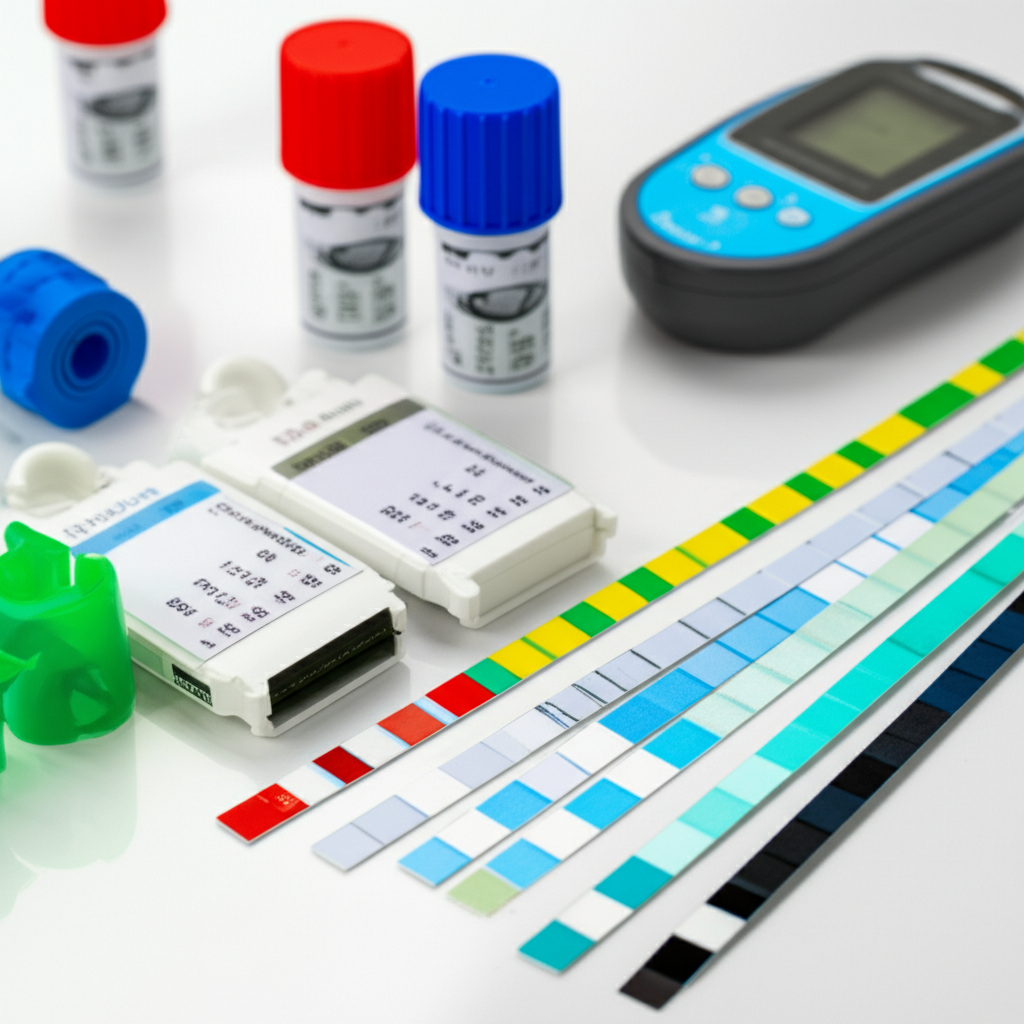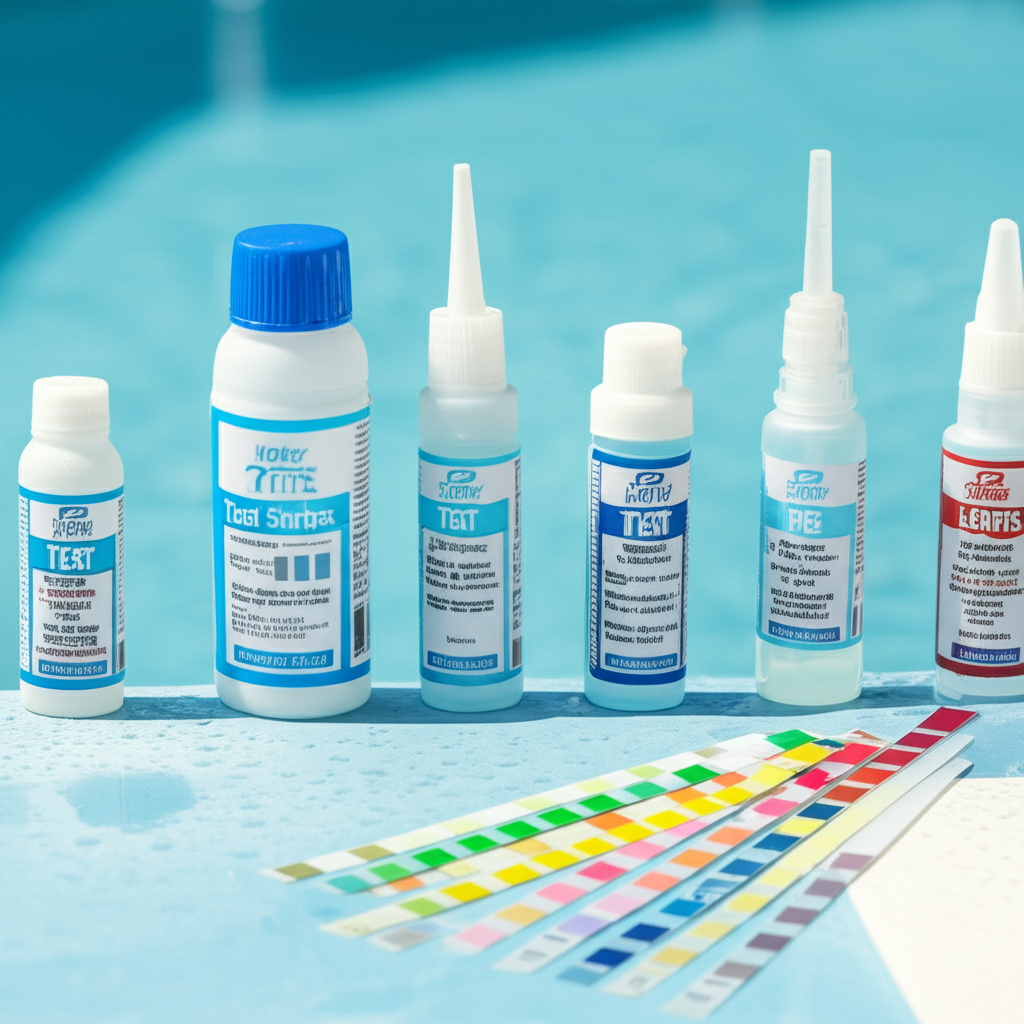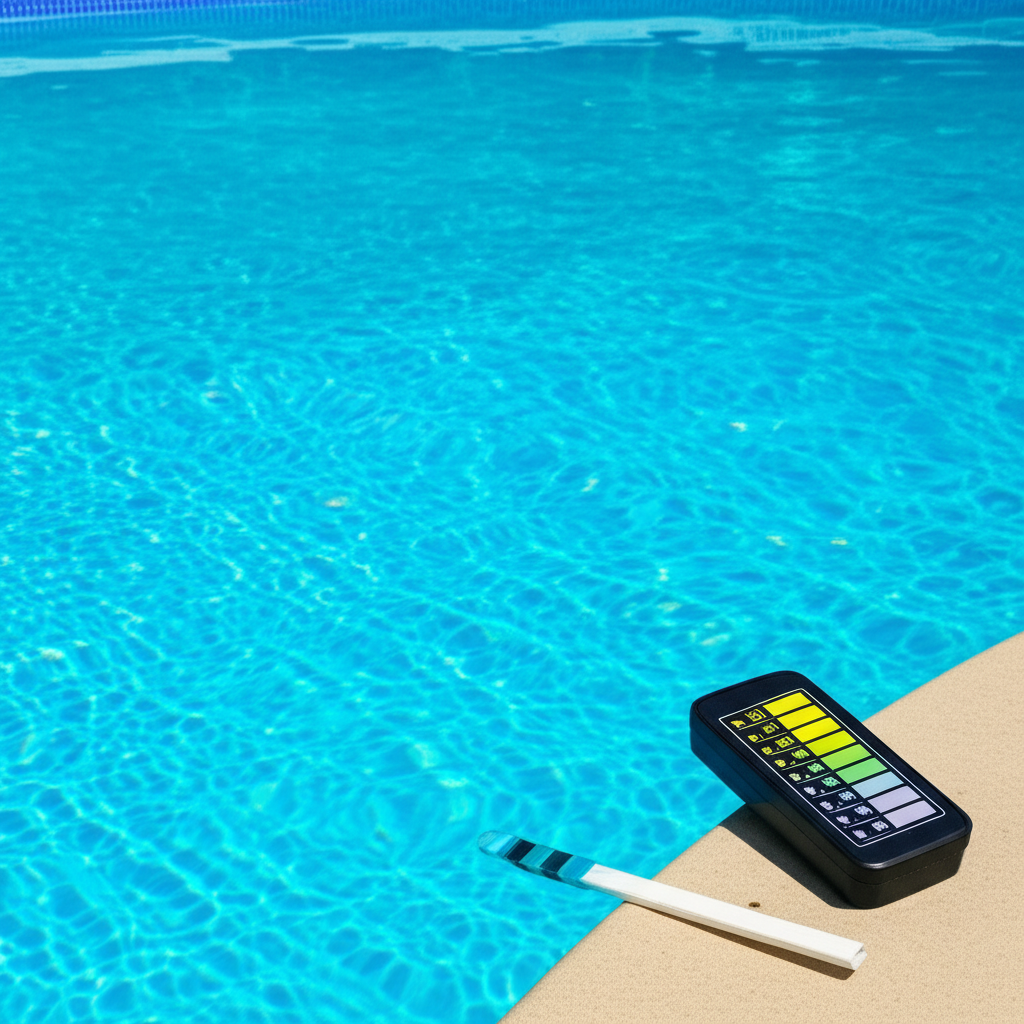- The Undeniable Importance of Pool Water Testing
- Understanding Your Options: Test Strips
- For Precision and Depth: Liquid Test Kits
- Essential Water Parameters to Monitor
- Making Sense of Your Results and Taking Action
- Choosing the Right Water Test Kit for Your Pool
Water Test Kits are indispensable tools for any pool owner seeking to maintain crystal-clear, safe, and healthy swimming conditions. Far from being a luxury, regular water testing is a fundamental aspect of pool maintenance, ensuring that the water chemistry is perfectly balanced. Modern test kits offer unparalleled speed and accuracy, empowering homeowners to get instant results and make informed decisions about their pool’s chemical needs, ultimately protecting both swimmers and the pool’s infrastructure.
The Undeniable Importance of Pool Water Testing
The allure of a sparkling pool can be deceptive. Water that looks clean might harbor invisible threats if its chemical balance is off. Imbalanced pool water can lead to a host of problems:
Health Risks: Incorrect pH levels or insufficient sanitizers can allow bacteria, algae, and other pathogens to thrive, causing skin irritations, eye infections, and gastrointestinal issues for swimmers.
Equipment Damage: Highly acidic or corrosive water can erode sensitive pool equipment like pumps, heaters, and liners, leading to expensive repairs and a shortened lifespan for your investment.
Cloudy Water & Algae Growth: Unbalanced water often results in murky, uninviting water, or worse, persistent algae blooms that are difficult and costly to eradicate.
Diminished Effectiveness of Chemicals: Sanitizers like chlorine work most efficiently within a specific pH range. If the pH is too high or low, chlorine becomes less effective, meaning you’re spending more on chemicals for less protection.
Regular testing with reliable Water Test Kits provides a proactive approach, allowing pool owners to identify and correct imbalances before they escalate into major problems.
Understanding Your Options: Test Strips
For those seeking the utmost in convenience and speed, Test Strips are an excellent choice. These small, disposable strips are infused with chemical reagents that change color when exposed to pool water. Most test strips measure several key parameters simultaneously, typically including:
Free Chlorine
pH
Total Alkalinity
Cyanuric Acid (CYA)
Calcium Hardness
To use a test strip, you simply dip it into the pool water for a specified amount of time (usually a few seconds), remove it without shaking off excess water, and then compare the resulting color changes on the strip to a color chart provided on the kit’s packaging. The colors correlate to specific chemical levels, giving you an immediate snapshot of your pool’s chemistry.
Pros of Test Strips:
Speed: Results are available within seconds.
Ease of Use: Simple dip-and-read method requires no special training.
Cost-Effective: Generally the most affordable option for routine testing.
Portability: Compact and easy to carry, ideal for quick checks.
While incredibly convenient, the accuracy of test strips can sometimes be affected by factors like expiry dates, proper storage (they can degrade if exposed to moisture or sunlight), and the subjective interpretation of colors by the user.
For Precision and Depth: Liquid Test Kits
When higher precision and a wider range of tests are desired, Liquid Test Kits step up to the challenge. These kits typically involve adding a specific number of reagent drops to a water sample taken from the pool. Each reagent reacts with a particular chemical in the water, causing a color change that is then compared to a fixed color standard. Some liquid kits also employ titration tests, where reagents are added drop by drop until a color change is sustained, allowing for extremely precise measurements.
Liquid Test Kits often test for a broader spectrum of parameters, including:
Free Chlorine
pH
Total Alkalinity
Calcium Hardness
Cyanuric Acid (CYA)
Total Chlorine
Bromine
Acid/Base Demand (for more precise pH adjustments)
Pros of Liquid Test Kits:
Accuracy: Generally considered more accurate than test strips, especially for critical parameters like pH and chlorine.
Reliability: Less prone to environmental degradation compared to strips if reagents are stored properly.
Comprehensive: Often include tests for a wider range of chemical imbalances.
Clearer Results: Color changes are often more distinct, reducing ambiguity.
The main downsides are that they take slightly longer to perform due to multiple steps and require careful handling of chemical reagents. They also tend to be a bit more expensive initially, though many offer refill reagents.
Essential Water Parameters to Monitor
Regardless of whether you choose test strips or a liquid kit, there are core parameters every pool owner should regularly monitor:
Free Chlorine (1-3 ppm): The active sanitizer that kills bacteria and algae.
pH (7.4-7.6): Measures water’s acidity/alkalinity. Crucial for swimmer comfort and chlorine effectiveness.
Total Alkalinity (80-120 ppm): Acts as a buffer to prevent rapid pH swings.
Calcium Hardness (200-400 ppm): Prevents plaster etching (too low) or scaling (too high).
Cyanuric Acid (CYA) (30-50 ppm): Stabilizes chlorine against degradation from UV rays.
Making Sense of Your Results and Taking Action
Once you have your test results, the next step is to interpret them and apply the necessary chemicals to rebalance your pool. All Water Test Kits come with guidelines for ideal ranges. If a parameter is too high or too low, you’ll need to add specific balancing chemicals (e.g., pH Increaser, pH Decreaser, alkalinity increaser, calcium hardness increaser, chlorine, shock). Always follow manufacturers’ instructions for chemical dosing and allow for proper circulation before retesting to confirm the desired levels have been achieved.
Choosing the Right Water Test Kit for Your Pool
The best Water Test Kit for you depends on several factors:
Frequency of Testing: For daily or semi-weekly checks, test strips offer unbeatable convenience.
Desired Accuracy: If you demand professional-level precision or are troubleshooting persistent water chemistry issues, a liquid test kit is often superior.
Budget: Test strips are generally more budget-friendly for ongoing use, while liquid kits have a higher upfront cost but often offer greater long-term value due to refillability.
Comfort Level with Chemicals: Test strips involve minimal contact; liquid kits require handling droppers and reagents.
Ultimately, both Test Strips and Liquid Test Kits are designed to deliver instant, accurate results, making pool maintenance manageable and ensuring your swimming environment is always pristine and safe.
Maintaining proper pool water chemistry is not just about aesthetics; it’s about health, safety, and protecting your investment. By routinely using high-quality Water Test Kits, pool owners can quickly identify and correct imbalances, ensuring their aquatic oasis remains a source of joy and refreshment for years to come.



